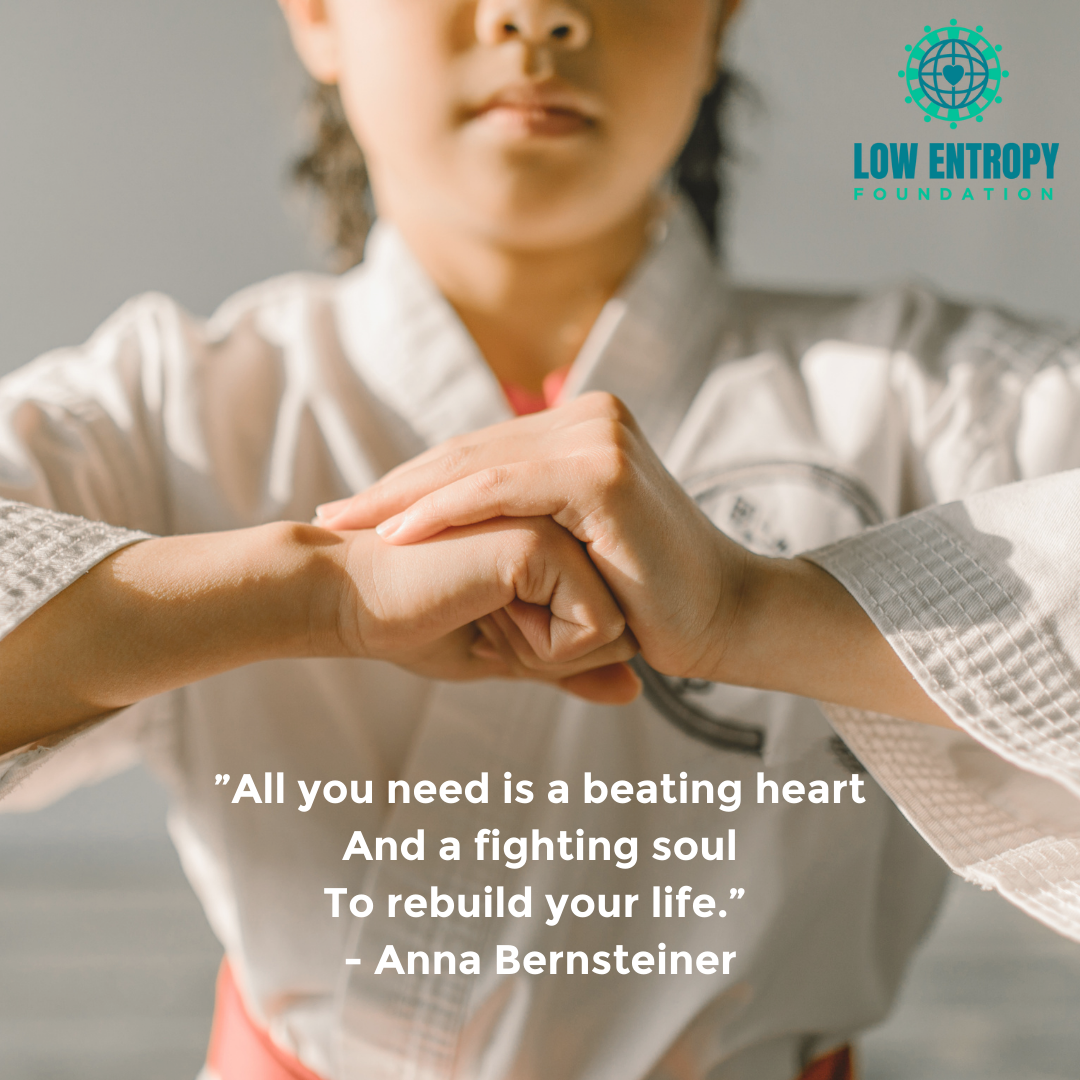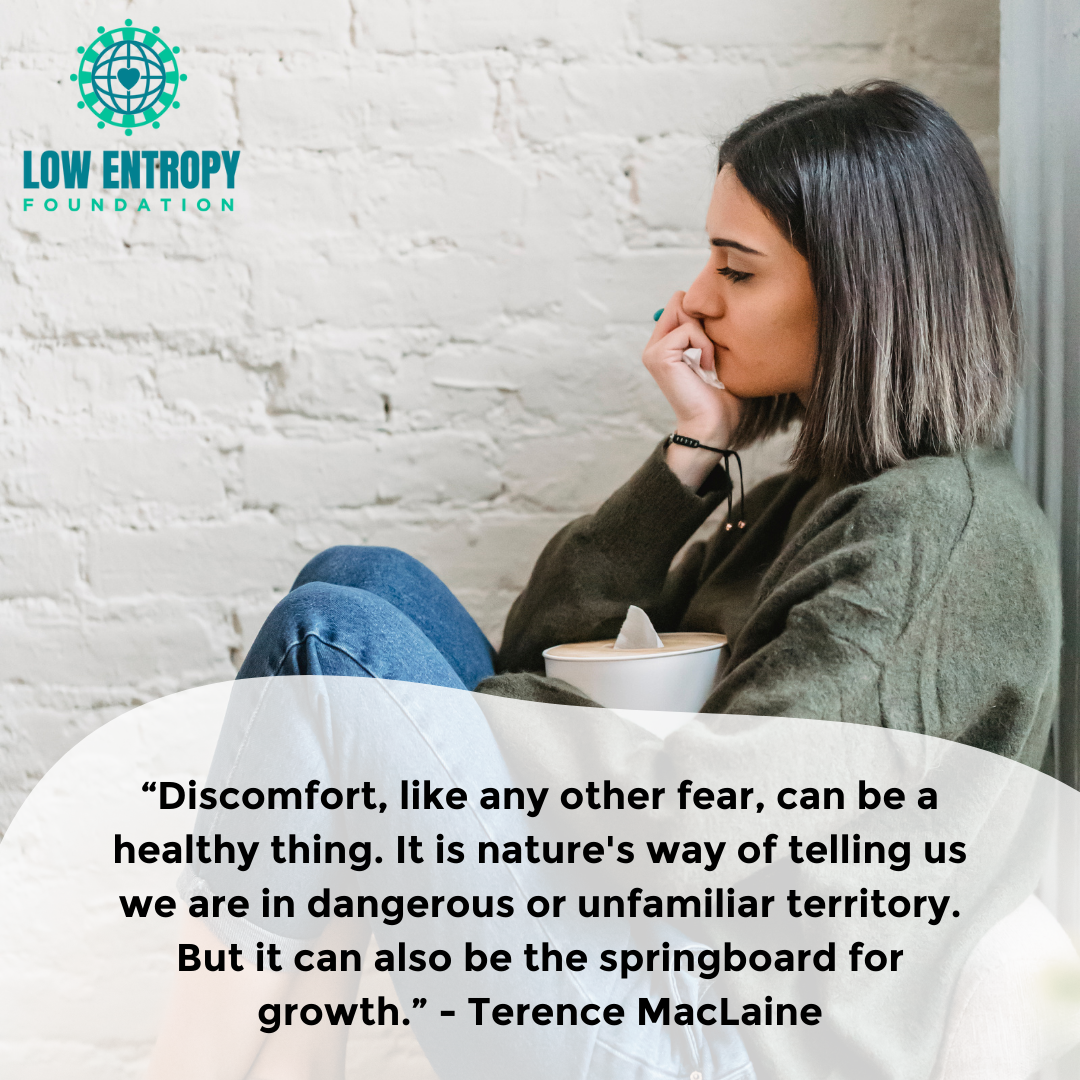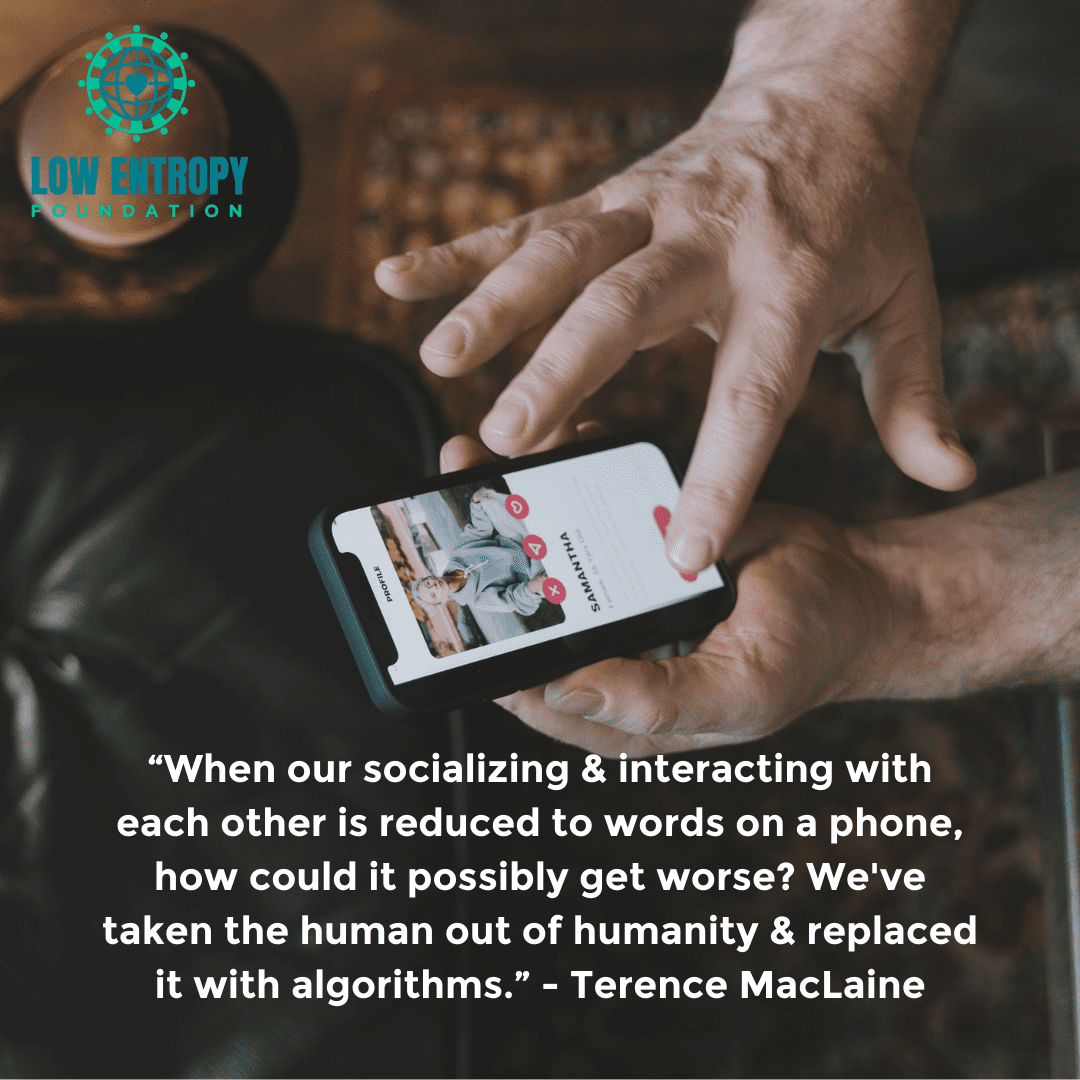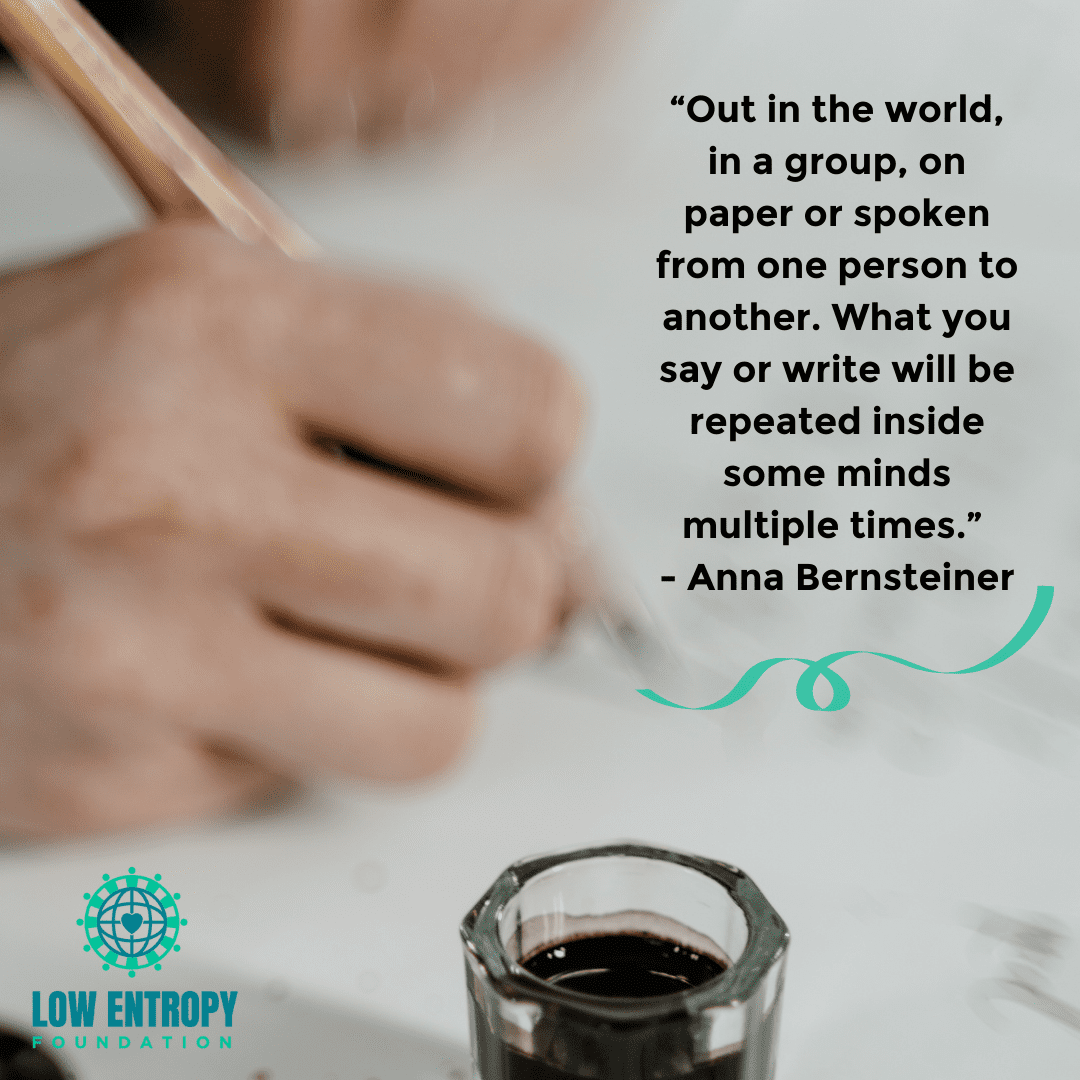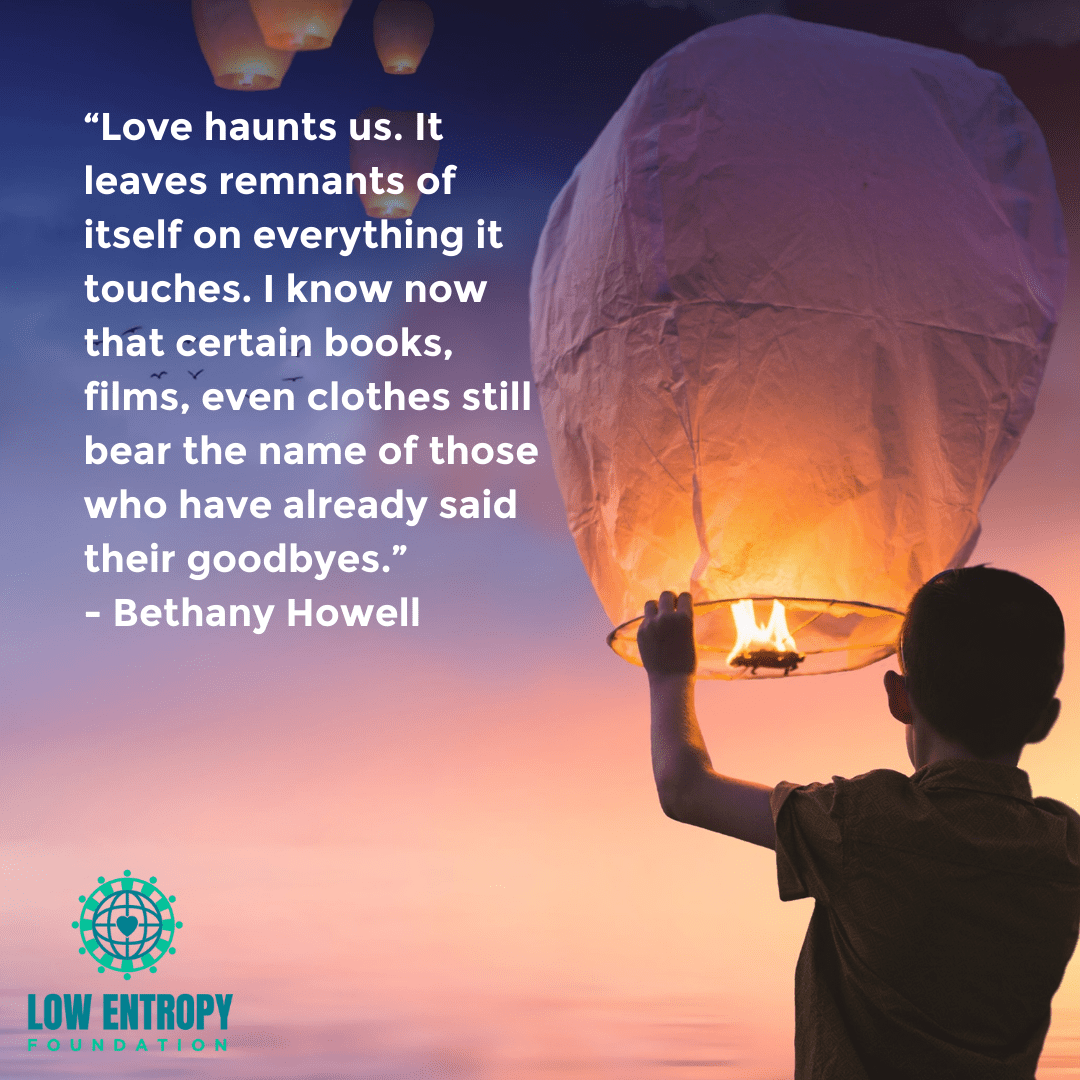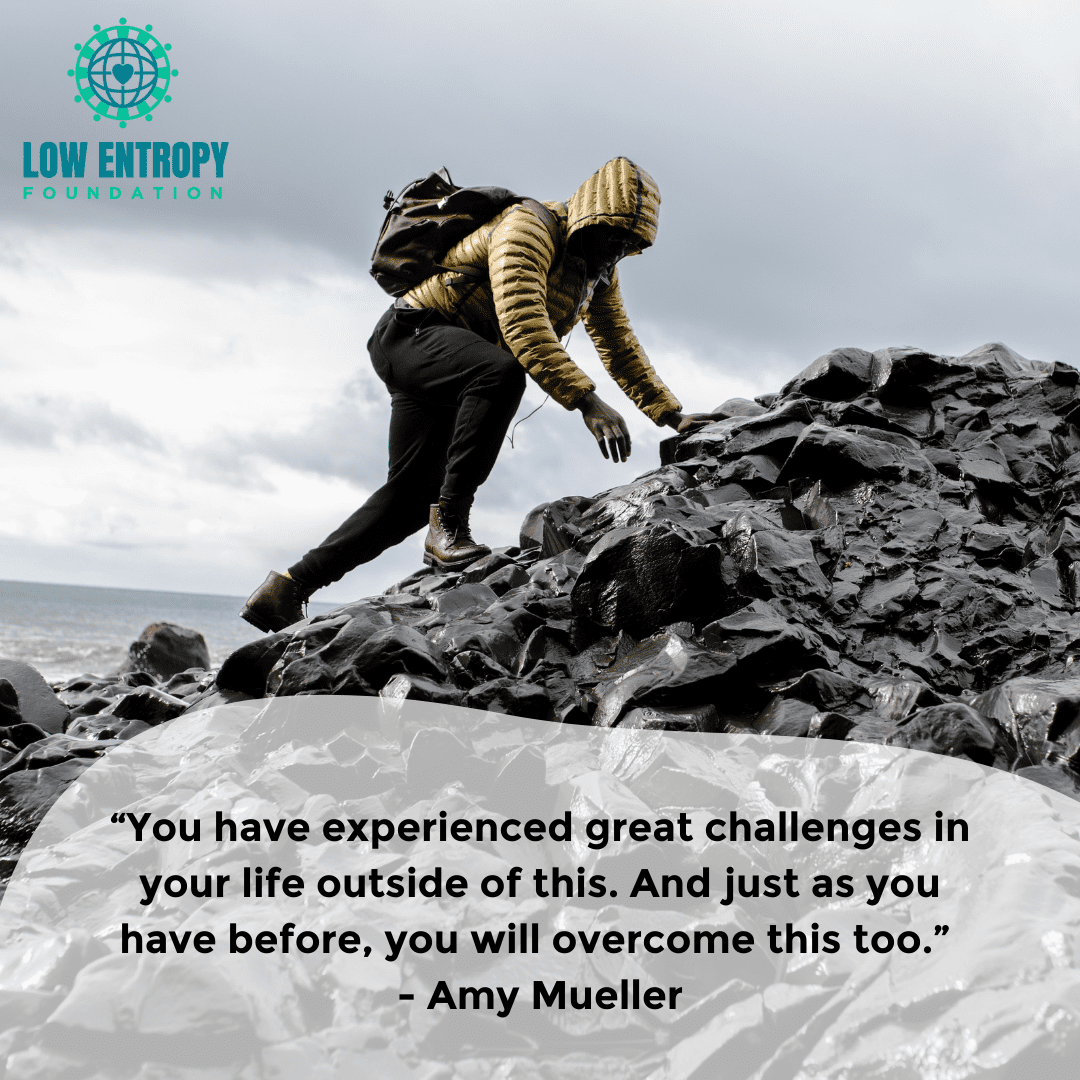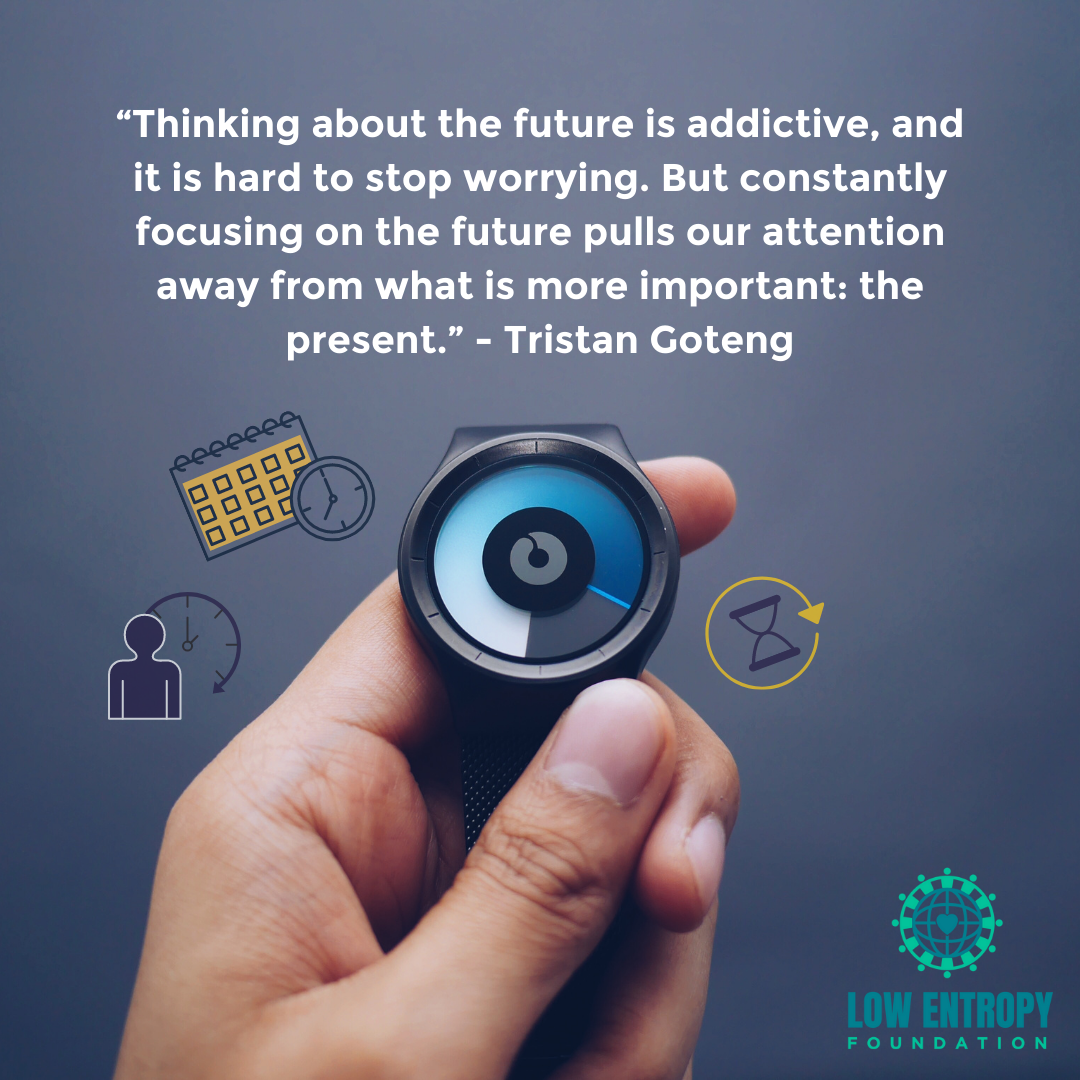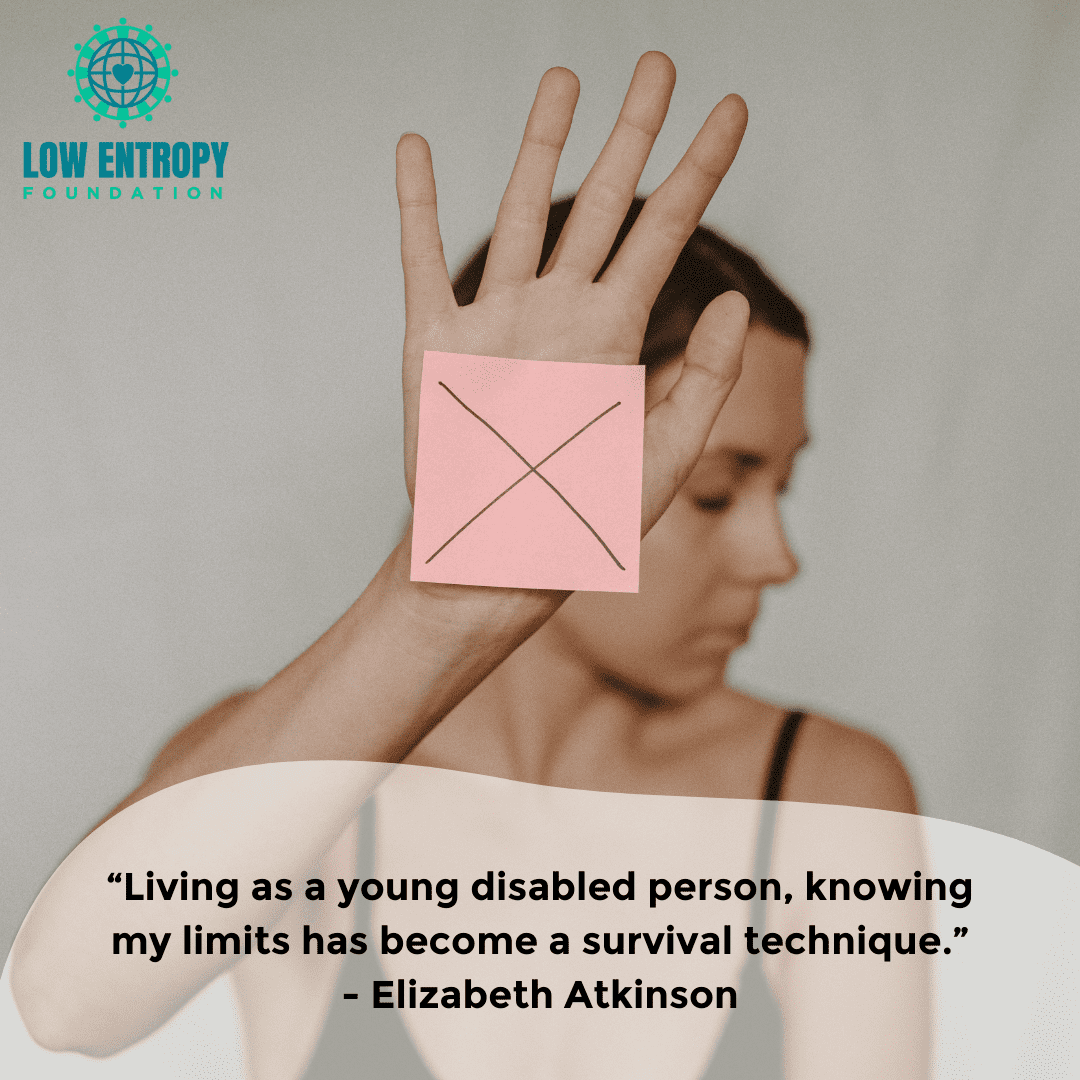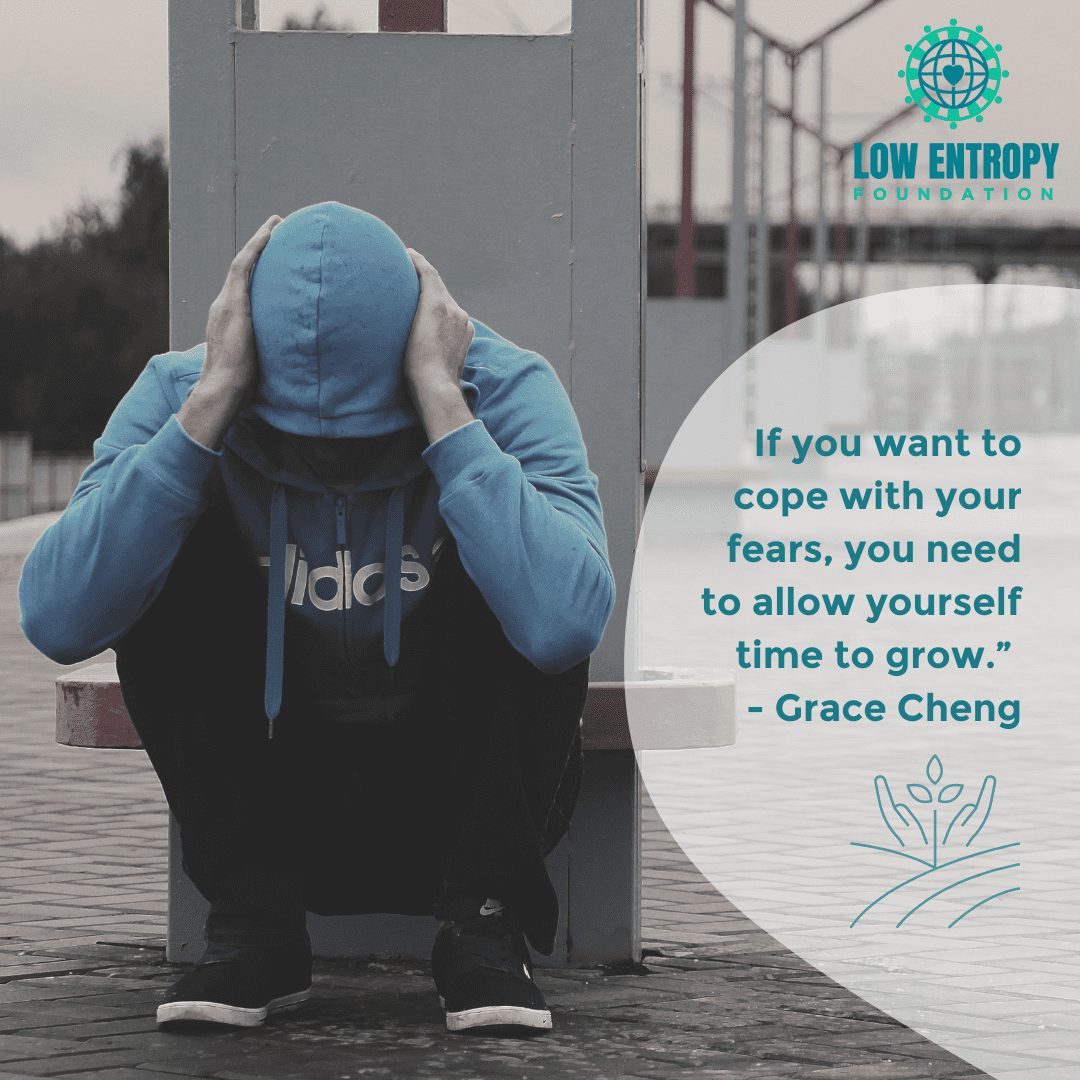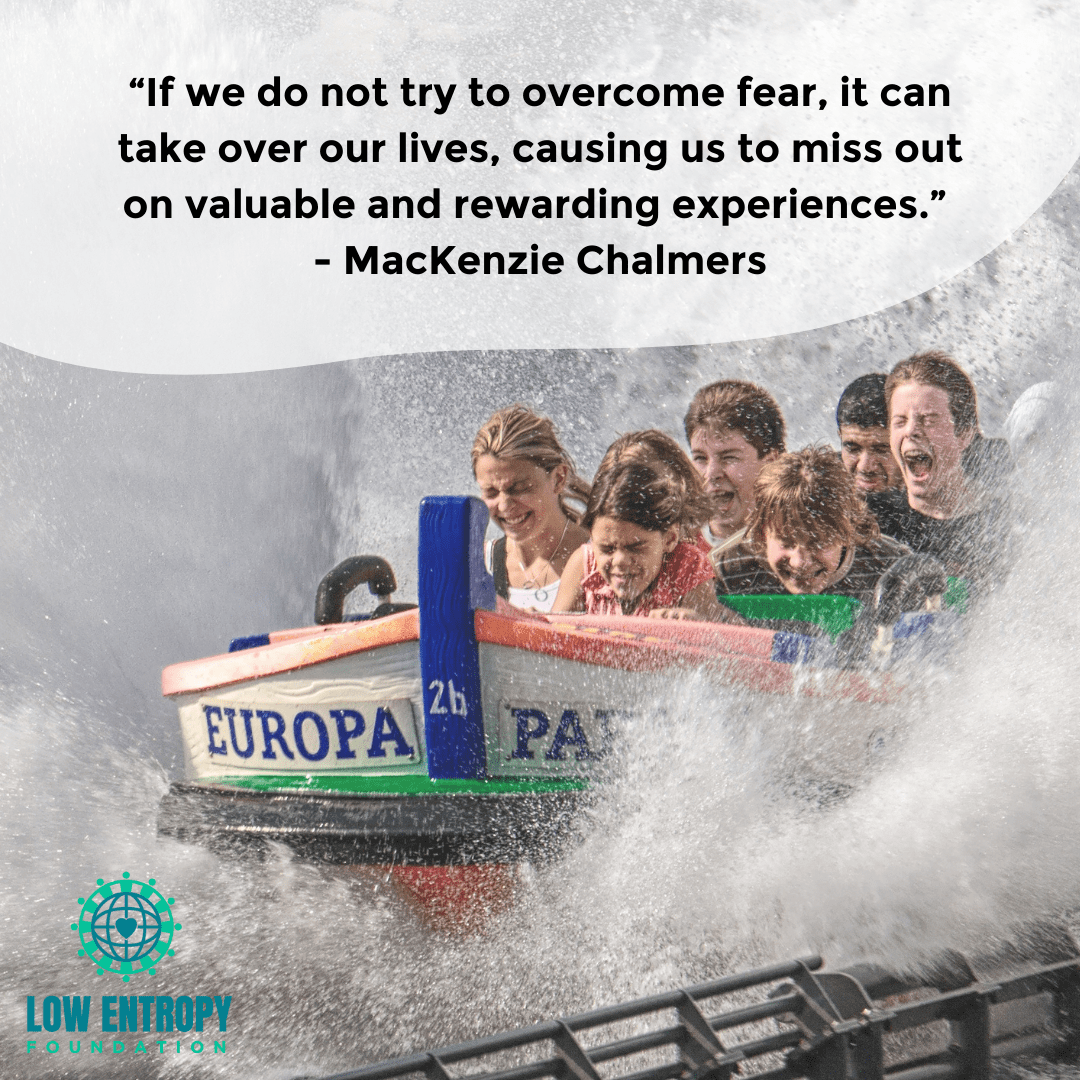Grace Cheng (she/her/hers), Low Entropy Volunteer Writer
Being afraid is quite common among all of us, including myself, and it is completely normal. Fear of the unknown is a universal problem. Fear can be an essential survival instinct: as we attempt to survive life’s different struggles, our bodies watch over us with emotions like fear. Anytime we can sense any sort of danger, our bodies send a warning sign to our brains to engage fight-or-flight responses.
Have you ever felt that fear has held you back from doing things that you want to do and reaching your goals and dreams? I believe that overcoming fears is a life skill that everyone needs to learn. If we do not face and overcome our fears, it can prevent us from following our dreams and paralyze us from moving forward in our lives.
Want to know how you can overcome your fears? I have discovered 10 practical ways for you to tackle your fears.
1. Acknowledge your fears
The first step in overcoming your fears is to acknowledge your fears. When you have acknowledged them, you are beginning the journey of addressing the potential roadblocks that prevent you from moving forward in life. After you have acknowledged your known fears, you can start to learn how you can cope with them.
2. Identify what kind of fears you are facing
To be able to conquer your fears, you need to identify what kind of fears you are facing. You will need to ask yourself the following question: What kind of things are you afraid of? It is a good idea to write down all the things that scare you and record your feelings and thoughts about them. Once you have identified your fears, you can have a better understanding of why you do things a certain way and what is holding you back.
3. Face your fears
Bear in mind that when something seems scary, it does not always mean it is going to be a massive risk to your life. You should try to face your fears by taking small steps, and gradually you will be able to decrease your anxiety level. Keep in mind that there is always more than one way to tackle your fears.
4. Do the things that you fear
Once you understand that fear is just a feeling, you can take control of your life and do the things that scare you. The feeling of fear cannot destroy or hurt you, so you have a choice to ignore it and go forward. After you analyze the pros and cons of a situation, you might realize that the possibility of a negative result is minimal. If you are not acting recklessly in your decision-making, there is nothing that can stop you from moving forward to overcome your fears.
5. Turn your fears into fuel for personal development
Overcoming your fears can be seen as a way for self-improvement and personal development. Once you have tackled your fears, it can open doors for you to better opportunities. If you want to cope with your fears, you need to allow yourself time to grow. You can use your fear as leverage to help you achieve your goals and fulfill your dreams and destiny.
6. Think positive
Thinking positively can be a powerful tool to break through your fears. It takes time to see good results, and you might have to face failures in your first few trials. But if you keep yourself positive and stay focused on your goals and dreams, you will eventually see the results that you are looking for.
7. Join a support group
It is helpful to find a support group and ask people who have experienced similar situations to see how they have managed and overcome their fears and anxiety. You can learn a lot from them, especially through hearing their stories and experiences. A support group is a great way to encourage each other and brainstorm new ways to conquer fears.
8. Try mediation
Mediation can be a great method to overcome your fears and anxiety because it allows you to find inner peace to manage mental stress. Once you can relax, it will be easier for you to reduce your fears, anxiety and everyday stress.
9. Exercise regularly
Doing exercise regularly can help us to relax our bodies and minds, thus decreasing our fears and anxiety. Yoga can be a good exercise, because it can help us lower our blood pressure, reducing our stress and fears.
10. Take action
You must take action to tackle your fears, because action is the only way to change your life. Your life is made up of the choices you make today, and changes only happen when you change. Once you conquer your fears, you will realize how much progress you made and can start to live a more fulfilling life.
Are you ready to take action to overcome your fears today?
—
Grace has an accounting and finance background. She enjoys reading, writing, listening to music, watching movies and playing sports.







